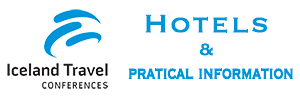The purpose of the OB SIG is to develop an ongoing and constructive dialogue among organizational behaviour scholars and practitioners to conduct research that is relevant for management theory and practice in the contemporary world. The OB SIG aims at promoting research and networking interests in individual and group behaviour in the organizational context by providing a wide-ranging, engaged and internationally-focused forum to discuss and develop research and practice in the field. In addition to well-established topics the OB SIG is open to and wants to encourage submissions to different new streams of research in private, public and non-profit organizations.
SIG OFFICERS:
Zeynep Yalabik (University of Bath, UK) This email address is being protected from spambots. You need JavaScript enabled to view it. SIG Chair
Zeynep Yalabik (University of Bath, UK) This email address is being protected from spambots. You need JavaScript enabled to view it. and Dr Eleanna Galanaki This email address is being protected from spambots. You need JavaScript enabled to view it. SIG Programme Chairs
Ceydan Maden Eyiusta This email address is being protected from spambots. You need JavaScript enabled to view it. and Dr Dinuka Herath This email address is being protected from spambots. You need JavaScript enabled to view it. Communications Officers
GT 09_00 Organisational Behaviour - SIG General Track
The OB General Track is open to all papers that broadly fall into the domain of Organizational Behaviour but are not covered by the various other tracks of the OB SIG. The OB General Track is open to a variety of themes on both well-established topics and new streams of research in public, private and non-profit organizations. The submitted papers might be dealing with the attributes, processes, mechanism, behaviours, and outcomes within and between individual, interpersonal, group, and organizational levels of analysis.
ORGANISATIONAL BEHAVIOUR SIG STANDING TRACK
ST 09_01 Team Performance Management
The standing track welcomes papers that study individuals in teams (e.g., how multiple-team membership impacts on individual learning and adaptation, how individual performance is influenced by team dynamics), teams as units (dynamic views on team processes, antecedents and consequences of team performance, team emergent states, team training, empirically supported team interventions, virtual teams) as well as the inter-team dynamics in larger social systems (e.g., multi-team systems dynamics and effectiveness, teamwork implementation in organizational settings). The research topic is inclusive and we expect papers that use or combine theoretical insights from a variety of disciplines (Organizational Psychology, Sociology, Management and Organization Studies) and use various research methods and approaches (ranging from field studies to experiments and formal simulations) to understand the dynamics and effectiveness of organizational teams. We intend to publish a selection of papers presented within this track in the journal “Team Performance Management”.
ST 09_02 Human Resources Management
The standing track covers the complete field of HRM research, promoting theory and research development on important substantive and methodological topics in the field. Abstract proposals falling within the broad domain of HRM will be considered, spanning from micro HRM to strategic HRM and international HRM subfields.
Empirical studies, theoretical contributions and interdisciplinary research are welcome.
ORGANISATIONAL BEHAVIOUR SIG TRACK
T 09_04 Leadership
Leadership is "a process whereby intentional influence is exerted over other people to guide, structure, and facilitate activities and relationships in a group or organization" (Yukl, 2001, p. 21). Leadership is a popular topic and a core construct of interest within the field of organizational behavior, as it is a crucial factor influencing a range of organizational outcomes as well as employee well-being and health (among others). In light of its relevance and prevalence, we have created a specific track within EURAM to collect and curate related leadership research. We welcome theoretical and empirical papers that apply quantitative and/or rigorous qualitative methods relevant to leadership. This leadership topic proposal is purposefully broad under the general theme of leadership to appeal to multiple paradigms and approaches spanning numerous EURAM SIGs including (but not limited to) Human Resources, Gender, Race, and Diversity in Organisations, Social Issues, Business & Society, and Research Methods. However, given our primary affiliation with the Organisational Behaviour SIG, we especially encourage micro- and multi-level empirical work.
T 09_05 Meaningfulness and Mindfulness at Work: A Calling and Crafting of Action Research
In the particularly valueless world that we live in today, it is by no means a surprise that people and researchers alike are turning to the study of meaningfulness, work as a sense of calling, job crafting, and mindfulness, amongst other positive studies. In this Conference topic, we challenge our colleagues investigating under these or other related themes to join us in a flourishing and productive way. Research from all sorts of epistemic and ontological stances are welcome, including both qualitative and quantitative studies, particularly those with an action research and/or intervention approach.
T 09_06 Motivation, Trust and Incentives
Work motivation is a longstanding topic in organizational studies and several theories and constructs have been proposed to explain which factors compel individuals to initiate action, to work hard and sustain their effort. Moreover, job and work environment characteristics, national culture and the person-organization fit have been recognized as determinants that can play a significant role in generating motivation. Starting both from these premises and from the more recent approaches to the study of work motivation the track aims at exploring the relation of motivation to organizationally relevant antecedents and outcomes such as trust, leadership, goal-setting, and organizational justice.







